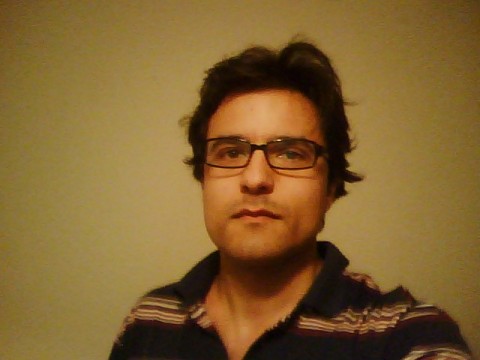It’s SATURDAY NIGHT ! ÁVILA ! FRAILE ! BALLARD ! THIBODEAUX ! curated by GUILLERMO PARRA!
September 25, 2010
 Years ago, Stephen Malkmus sang: “Can you treat it like an oil well / When it’s underground, out of sight?” I think of these lines now in relation to the writers I have the pleasure to present here. The texts by these two poets and two fiction writers operate explicitly within underground or experimental aesthetics, attuned to their place within a rich tradition of countercultural expression.
Years ago, Stephen Malkmus sang: “Can you treat it like an oil well / When it’s underground, out of sight?” I think of these lines now in relation to the writers I have the pleasure to present here. The texts by these two poets and two fiction writers operate explicitly within underground or experimental aesthetics, attuned to their place within a rich tradition of countercultural expression.
I have chosen these writers because their work inspires me. But I also like the idea of having their texts share the same digital space. I’m hoping the juxtaposition of poetry and fiction will be as enjoyable to the reader as it is for me. I am also very conscious of creating a possibility for interaction between American and Venezuelan experimental writers.
The two poets have provided sequences of texts that can be read as single works, with each poem being the equivalent of a chapter or episode. I have translated the two short stories included here from the Spanish originals. In the short stories, the reader will find imagery and situations that can only be fully appreciated through the lens of poetry.
Carlos Ávila’s short story “The Antichrist” is a rewritten (radically edited) version of a text included in his first book. The young narrator manages to keep his wits during an extreme situation, thanks partly to an invocation of the anarchic spirit of the Sex Pistols. Ávila’s direct, plain prose sustains beautifully evoked images that startle us.
Micah Ballard’s sequence “Let Us Wake Rifles” opens with an invocation of poetic ancestry, so as to lead us through a gallery of visions imbued with elegance and charm. Ballard’s language is a classical slang, as though the phantoms he conjures were at ease and thinking out loud. (“I learned to mix the languages / & do it in code”)
Dayana Fraile’s short story masterfully narrates an encounter between two generations late one evening at a bus stop in Caracas. Her prose is attuned to the minor details that can bring people together, how friendship can spring from misunderstanding. The story is also a fascinating glimpse at the way subcultures evolve as their participants age. The reader will note a vulnerability that her characters might not be ready to acknowledge until they meet.
Sunnylyn Thibodeaux offers a sequence called “As Water Sounds,” which comments on our contemporary landscape of permanent crises. But the poet doesn’t merely lament or critique this unfortunate situation. Rather, she assumes an approach to language that reveals a complete faith in the magic of poetry (that is, song) to heal and reconstruct. “The Silent Spaces of Utopia Parkway,” indeed.
 Guillermo Parra (Cambridge, MA, 1970) lives in Durham, NC, where he writes the blog Venepoetics. He has published two books of poetry, Caracas Notebook (Cy Gist Press, 2006) and Phantasmal Repeats (Petrichord Books, 2009). His poems, essays and translations have appeared in 6×6, Fascicle and Papel Literario, among others. He is currently translating the complete works of Venezuelan poet José Antonio Ramos Sucre (1890-1930).
Guillermo Parra (Cambridge, MA, 1970) lives in Durham, NC, where he writes the blog Venepoetics. He has published two books of poetry, Caracas Notebook (Cy Gist Press, 2006) and Phantasmal Repeats (Petrichord Books, 2009). His poems, essays and translations have appeared in 6×6, Fascicle and Papel Literario, among others. He is currently translating the complete works of Venezuelan poet José Antonio Ramos Sucre (1890-1930).
Filed in Carlos Ávila, Dayana Fraile, Fiction, Guillermo Parra, Micah Ballard, Poetry, Prose, Short Stories, Sunnylyn Thibodeaux, Translation
Tags: Carlos Ávila, Dayana Fraile, FICTION, Guillermo Parra, Micah Ballard, Poetry, Prose, SHORT STORY, Sunnylyn Thibodeaux, TRANSLATION